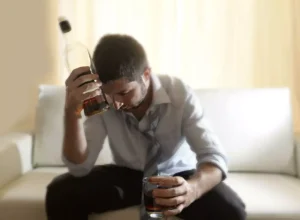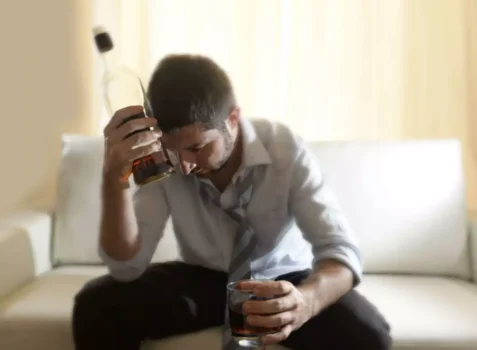
Scientists at the University of California, Davis, hypothesize that even when you have a small glass of wine, the amount of quercetin in it could lead to a headache within 30 minutes to 3 hours. A dietitian explains why you might get a headache after sipping even a small amount of red wine. There is no specific remedy that works for every case of a hangover headache.
Sensitivity to specific ingredients in alcohol
Gaining a greater understanding of these headaches can be key in battling them. There are multiple ways in which you can prevent and heal an alcohol-induced headache using natural remedies. You may think that a single glass of wine might not be enough to cause an alcohol-induced headache, but this isn’t necessarily true. You may find that one day you can drink a lot of alcohol and not experience a headache at all, yet another day just a few glasses will leave you with a pounding head. One of the main problems facing those who struggle with alcohol is the alcohol-induced headache. This common problem may affect one of the 10.8 million adults in the UK who are drinking at a worrying level.

General hangover tips

Another thing that remains unclear is whether the type of alcohol you drink determines whether or not you will get a migraine headache. Some studies found that red wine is a main trigger in migraine with aura and cluster type migraine, but they also note that all alcohol could have the same effect. Many people have experienced a headache after drinking alcohol — especially after drinking too much. While headaches are generally recognized as a side effect of alcohol in many people, its reputation as a migraine headache trigger may be overestimated. There are a variety of compounds in alcohol that can cause post-alcohol related headaches. These chemicals include tryptamines, flavonoids, acetaldehydes, and congeners among others.
Getting Rid of Hangover Headache
- Then again, in some groups, alcohol appears to have protective effects against headaches.
- The underlying cause of exertion headaches is thought to be venous insufficiency (in which veins have problems moving blood back to the heart).
- And acetaminophen (Tylenol, others) may cause serious liver damage if taken with too much alcohol.
- In conclusion, preventing or alleviating a hangover headache involves staying hydrated, eating before drinking, and limiting alcohol intake.
- Reducing your alcohol intake is the best way to avoid these headaches completely.
The effects of alcohol intoxication are relatively predictable based on measured blood alcohol content. A primary dehydration headache can occur when your water intake hasn’t kept up with your body’s demand for fluids. Dehydration is a common cause of headaches including migraines, especially in warm weather months. A secondary type can occur when dehydration affects another process in your body and the headache follows.

- A headache may begin within a few hours after drinking alcohol-containing beverages or can start up to 16 hours later.
- Understanding these underlying reasons can help individuals make informed choices about their alcohol intake and prevent or manage post-drinking headaches effectively.
- You might also be able to relieve your red wine headache by applying a cold press to your head or laying down in a dark, quiet space.
- Alcohol reduces your levels of B vitamins, making it harder for your body to metabolize and eliminate alcohol.
- In fact, in one large survey on cluster headaches, beer was the most common culprit of all alcoholic drinks.
- Ria Health offers several FDA-approved medications for alcohol use disorder.
Drinking a beverage that’s packed with additional electrolytes can help you restore your electrolyte balance and remain hydrated. According to the National Headache Foundation, a person can also consume oral rehydration solutions to help manage dehydration. Oral rehydration solutions back of head headache after drinking contain the correct amounts of glucose and electrolytes to help a person rehydrate more quickly. It also looks at ways to manage the other symptoms of a hangover and when to contact a doctor.
- Certain additives can increase the chance of developing a headache after drinking.
- A person may experience migraine after drinking if they are susceptible to it.
- While this drug is not available in the U.S., other related medications, including ibuprofen, naproxen, and prescription nonsteroidal anti-inflammatory drugs (NSAIDs) may be similarly helpful.
- Much of this expense is related to hangovers in light to moderate drinkers.
- These types of headaches can strike anyone, of any age and background.
- These symptoms may begin within minutes or hours of drinking and vary widely in severity.
Generally, the more alcohol you drink, the more likely you are to have a hangover the next day. But there’s no easy way to know how much you can safely drink and still avoid a hangover. As already mentioned above, drinking lots of fluids before going to bed also helps in preventing or at least reducing the severity of headaches next morning. If you notice consistent patterns, then chances are it’s the alcohol that’s causing your migraine headache. People who consume greater quantities of alcohol report more alcohol-related headaches, according to several studies. Then again, in some groups, alcohol appears to have protective effects against headaches.

About Medical News Today
Males should aim to drink two or fewer drinks daily, and females should aim to drink one or fewer. A combination of the toxic effects of alcohol and the withdrawal from the effects of alcohol causes a hangover. The effects of ethanol intoxication on the brain are quite pleasurable at first, leading to feelings of relaxation and happiness. However, as more ethanol is consumed, negative effects amphetamine addiction treatment such as blurred vision, slowed reaction times, impaired perceptions, and loss of inhibitions occur. At higher concentrations, ethanol can cause hiccups, vertigo, confusion, lethargy, memory loss, vomiting, stupor, coma, slowed breathing, and even death.
